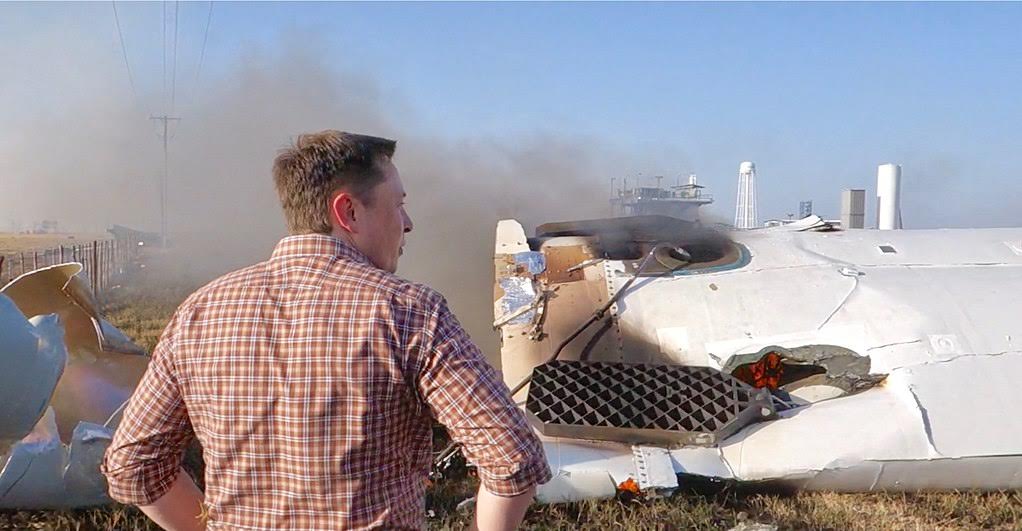Tesla is an uninvestable stock for me, not just because of its high valuation but also because it fails our fairly basic quality test, which I shamelessly borrowed from Warren Buffett: Would I still buy this stock if right after the purchase the stock market were to close for ten years? If you are a big Tesla car and stock fan, before you start throwing rocks at me, pause and wait till you finish this article – the rocks and I will still be there.
Think about the next ten years. But before you start mentally drawing upward-sloping lines from the current environment into the next decade and drooling over the rosy vision of Tesla’s future that Elon Musk has painted – produce half a million model 3s and bunches of semis and roadsters, and then send a roadster to Mars (I kid you not; that is in his 2018 plan – I’d like you to think about another version of the next ten years: higher (maybe much higher) interest rates, a recession in the US and around the globe, and a less promiscuous bond market where Tesla would have pay a substantial premium to US Treasuries (as would any other company that loses over a billion dollars a year in a highly cyclical industry). And now answer this question: Would Tesla survive this change in economic weather if it happened next year or even three years out? And the answer is … a weak “maybe” at best, and “unlikely” at worst.
The counterargument I’d get: Yes, but we are not going into a recession. Actually, we are. I (and nobody else, for that matter) just don’t know when. After nine years of appreciating stock markets and tepid economic growth, we tend to forget that recessions are a regular economic fact of life, usually arriving every four to five years (so we are overdue for one). Most Millennials have yet to experience adulthood (have a job and a family) through a recession. They have also never had to borrow at high interest rates – but that is liable to happen, too.
Recessions are usually caused by expansions. Recessions are like the hangover that comes after the wild college party (economic expansion). It’s hard to have a good, fun college party with lots of booze and then not experience a hangover. (I am not speaking from recent personal experience but rather am trying to communicate in language to which Millennials can relate). During the expansion party, companies may build up too much inventory or erect too many factories, and consumers may overconsume.
If you own high-quality companies, ones that meet Buffett’s “ten-year stock market closed rule” (as we do), you don’t have to spend a lot of time and energy thinking about when the recession will hit (we don’t). However, if you own Tesla you’d better have a very clear, shiny crystal ball that will reveal lots of detail about the direction of interest rates and the global economy.
Recessions are tough for deeply cyclical companies: The bulk of their costs are fixed, and thus lower sales usually result in significant declines in net income and often lead to losses. This is why car companies and their deeply cyclical brethren don’t trade at high price-to-earnings levels when the economy is doing well. That is when their earnings are high. The market doesn’t usually take these high earnings at face value, knowing full well that there are lower earnings (or losses) around the corner when recession comes. Tesla, however, doesn’t have to worry about this low price-to-earnings problem, because in spite of its $50 billion market valuation, it has no earnings, just losses. It trades at whatever price-to-future Elon Musk tells you it does.
If you own Tesla stock and you only see one rosy (Musk) version of the future, you are ignoring the very real risk that the benign economic environment of today will not persist indefinitely into the future . Good luck – you’ll need plenty.
One additional but very important point. In the past I was dismissive of traditional automakers’ ability to compete with Tesla. I felt their hundred-year past of producing internal combustion engine (ICE) cars was going to hold them back, the same way Nokia’s dumb-phone past prevented it from effectively competing against Apple’s iPhone. Nokia tried to take the dumb-phone operating system Symbian and turn it into a smartphone operating system. It had a lot of engineers who knew the Symbian operating system, and thus it seemed a logical path at the time. The right approach would have been the more difficult one: Hire new engineers and create a brand new operating system. There was absolutely no reason why Nokia could not have developed its own Android-like OS, even if doing so would have required either retraining or, more likely, laying off Symbian engineers.
For a while it looked like I was right about cars, as the Big Three took a hybrid (Symbian-like) approach to electric cars – they were having a hard time saying goodbye to ICE. However, as we look at the future lines of electric cars coming from US and German automakers, we now see them severing the connection to their ICE past and embracing electric.
Disclosure: I am an unsecured lender to Tesla through my $1,000 deposit on a Model 3.









0 comments